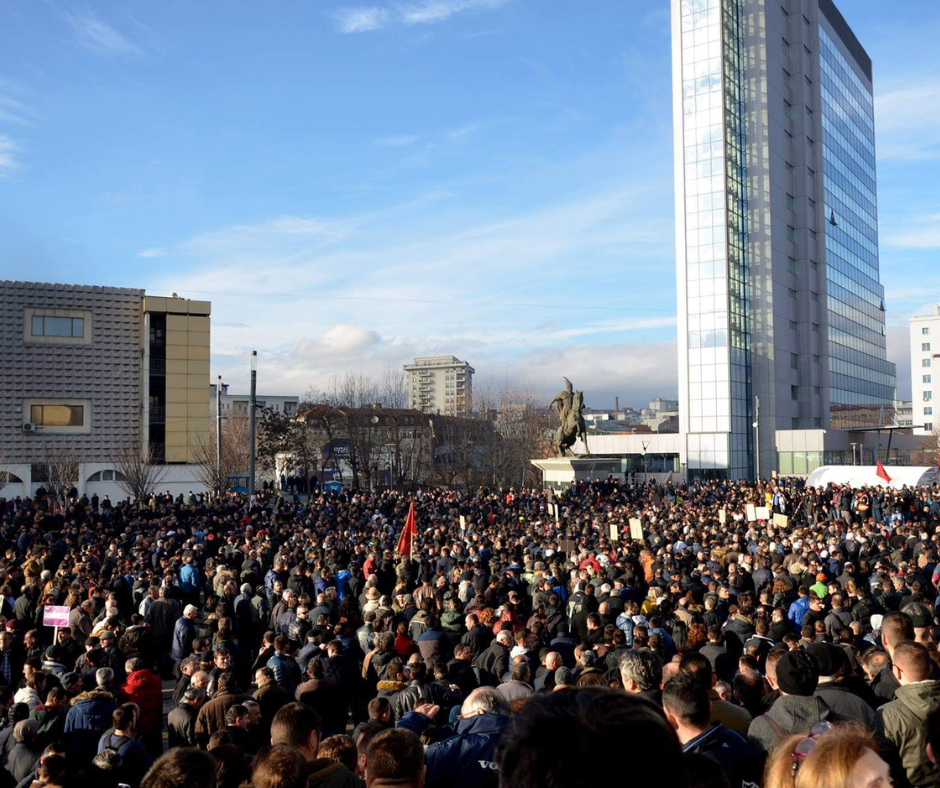01.08.2022

The enlargement of the European Union has two sides. On the one side there are a lot of opportunities for citizens of Kosovo, especially the youth.
Kosovo is the only country in Europe that NEEDS a visa to travel to Europe, even for a short while.
Be it artists, activists or sometimes even politicians, they all need to go through the lengthy visa
process only for a mere chance to travel to a country where opportunities in work, art or even
gains for the society might await them. The President of Kosovo Vjosa Osmani put it very nicely
during the meeting of the European Union and the Western Balkan leaders in Brussels. She
pointed out the irony that they met as equal members of the international community and yet she
was the only one who needed to get a visa to be part of the summit. It goes without saying that
this affects the youth in a country that is in Europe, uses the Euro as currency and has a lot of
connections to other European countries in a very bad way and that there is lots of lost
opportunities that stem from this bureaucratic hurdle. This in turn means that there is a lot to gain
from giving the citizens, especially the youth of Kosovo these opportunities and the ability to
engage with other European Countries more easily.
The other big benefit that lies in further EU integration of Kosovo is that this could potentially lead
to more security guarantees for Kosovo and that more diplomatic channels of communication with
Serbian politics could lead to a road of reconciliation and appeasement, which is much needed. In
the long run this could mean not only more political sovereignty for Kosovo, but also that Kosovo
does not have to rely on security guarantees by outside powers anymore and that peace becomes
a given for the citizens in Kosovo whose everyday life repeatedly came under threat of Serbian
politicians for weird polemic reasons such as license plates or Kosovo seeking to be part of
European Institutions in the past.
On the other hand, the EU sadly is not as perfect as it likes to pretend to be. Even though Kosovo
has reached all criteria for the Visa liberalization process some four years ago and yet nothing has
happened. Recently France blocked the process, but the problems run deeper, as this is of course
not only frustrating, especially to those who fought to implement changes towards fulfilling the
criteria, but also leads to growing skepticism towards the EU and its institutions and members.
This could be seen for example in the protests against giving land to North-Macedonia in return
for Visa liberalization, which was viewed as another empty promise by many.
With further EU integration comes more EU oversight and that is not always beneficial as the
situation In Greece following the 2008 financial crisis has shown. Without going too much into
detail, the economic situation in Greece was worsened a lot by the invasive politics the EU pushed
in Greece and, especially in hard economic times like we are approaching now the dangers of this
repeating and potentially having a negative effect on Kosovo are very real, but it is also true that
the EU has learned from its mistakes and that for example the institutional ‘Troika’ responsible for
many of the problems in Greece does not exist as such anymore. Another, potentially more
important fact is that Kosovo is not only a very young country, but a very engaged country when it
comes to civic activism and engagement. This is not to say that this was not the case in Greece and
that protests that happened in Greece during those times were not important, but the relation
between Police and especially left-wing groups in Greece is historically very different than in
Kosovo.
This means that the civic society in Kosovo might be able to withstand pressure from the EU in
some cases and keep beneficial politics it has already fought for in the past and this keeping the
economy growing and healthy while also furthering the integration into EU institutions for further
benefits for its citizens. This however presumes that the civic society in Kosovo not only keeps
active, but also keeps weary of politics the EU wants to implement and the way they want to do
this. This definitely goes two ways, as it not only means that the civic society in Kosovo is
important for the situation in Kosovo, but with further integration and more possibilities for
exchange comes the benefit that civic societies all around Europe learn from Kosovo youth groups
and in the long run work together for a better Europe and fight for a better version of the world
we live in for all of us together.

The article was written by Alexander Metz, he is an intern in the Kosovo Youth Council since April 2022. He grew up in Germany and through work in Labor Unions first got in contact with issues concerning the European Unions policies in the Balkans. In 2017 he did a Volunteer service in Tetovo in North-Macedonia and following that in 2018 he started studying political science in Marburg in Germany